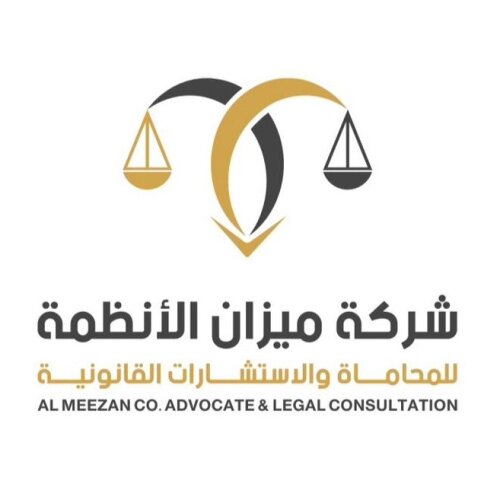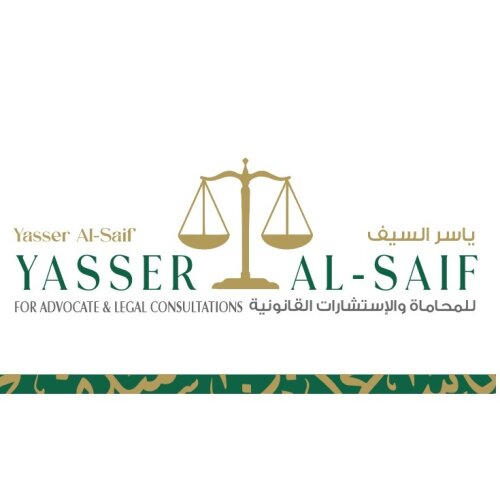
Best Debt & Collection Lawyers in Saudi Arabia
Share your needs with us, get contacted by law firms.
Free. Takes 2 min.
Or refine your search by selecting a city:
List of the best lawyers in Saudi Arabia

Saudi Arabia Debt & Collection Legal Articles
Browse our 1 legal article about Debt & Collection in Saudi Arabia written by expert lawyers.
- Options For Managing Debt in Saudi Arabia
- While expanding credit is usually a crucial component of development, any company conducting business in the competitive Saudi Arabian market must first properly manage its receivables. Commercial defaults and unpaid bills seriously affect long-term company stability, profitability, and cash flow.Many companies without a clear escalation plan or uninformed of the... Read more →
About Debt & Collection Law in Saudi Arabia
Debt and collection law in Saudi Arabia governs the relationship between debtors and creditors, establishing the legal framework for recovering debts. The system is based on Sharia law principles, focusing on ensuring fairness and justice in financial transactions. The Saudi legal system emphasizes amicable settlement, mediation, and arbitration to resolve debt disputes before escalating to litigation. This approach caters to the nation's adherence to Islamic teachings, which promote equity and discourage exploitative financial practices.
Why You May Need a Lawyer
In the field of debt and collection, there are several scenarios where you might require legal assistance:
- Disputes arising from unpaid debts or unclear loan agreements.
- Assistance in recovering a debt from an individual or business.
- Facing legal action from creditors demanding payment.
- Handling bankruptcy or insolvency proceedings.
- Ensuring compliance with local laws and regulations in debt collection practices.
- Representation in court in the case of a lawsuit.
A lawyer can help navigate these complex situations, providing expert advice and representation to protect your interests.
Local Laws Overview
The key aspects of local laws regarding debt and collection in Saudi Arabia include:
- Sharia Compliance: All financial agreements and transactions must comply with Islamic law, which prohibits usury and ensures fairness.
- The Enforcement Law: Governs the execution of debt judgments and orders, facilitated by the Enforcement Courts.
- Mediation and Arbitration: Encouraged as primary means to resolve disputes before considering litigation.
- Bankruptcy Law: Provides a framework for dealing with insolvency, offering alternatives such as restructuring to avoid bankruptcy.
- Consumer Protection Law: Protects individuals from unfair practices, ensuring transparency in credit agreements.
Frequently Asked Questions
What steps can I take if someone owes me money?
Start by attempting to resolve the issue through negotiation or mediation. If unsuccessful, a lawyer can assist in formal demand letters or legal proceedings.
How does the Saudi legal system handle unpaid loans?
The legal system encourages early dispute resolution through mediation. If unpaid, creditors may seek enforcement through the courts.
Can creditors charge interest on loans?
Under Sharia law, charging interest is prohibited. Financial transactions must adhere to Islamic principles, often structuring loans in profit-sharing formats.
What is the role of Enforcement Courts?
Enforcement Courts handle the execution of judgments relating to debt collection, ensuring compliance with court orders.
How long do I have to pursue a debt?
The statute of limitations for initiating legal proceedings varies, and a lawyer can provide specific guidance based on your situation.
Can I file for bankruptcy in Saudi Arabia?
Yes, the Bankruptcy Law outlines procedures for insolvency and provides options for restructuring and liquidation.
What should I do if I cannot pay my creditors?
Seek legal advice to explore options such as debt restructuring or settlements, and explore protection under bankruptcy legislation if applicable.
What are the legal rights of debtors?
Debtors have rights under consumer protection laws, including being informed and treated fairly in all credit transactions.
Is there a way to resolve debt disputes outside of court?
Mediation and arbitration are preferred methods for resolving disputes, offering a less adversarial approach than litigation.
How can a lawyer assist me during a debt collection process?
A lawyer can provide legal advice, represent you in negotiations or court, and ensure that all actions are compliant with local laws.
Additional Resources
For further assistance, consider contacting the following resources:
- The Ministry of Justice in Saudi Arabia for guidance on legal procedures.
- The Saudi Center for Commercial Arbitration for dispute resolution services.
- Law firms specializing in debt and collection for personalized legal advice.
- Consumer protection agencies for advice on rights and complaints regarding unfair practices.
Next Steps
If you require legal assistance in the field of debt and collection, consider the following steps:
- Consult with a lawyer specialized in Saudi debt and collection law to assess your situation.
- Gather all relevant documents, such as loan agreements, correspondence, and any prior attempts at resolution.
- Explore mediation as a potential solution before resorting to litigation.
- Prepare for potential legal proceedings by understanding your rights and obligations under Saudi law.
By taking informed steps, you can better navigate the complexities of debt and collection, safeguarding your financial and legal interests.
Lawzana helps you find the best lawyers and law firms in Saudi Arabia through a curated and pre-screened list of qualified legal professionals. Our platform offers rankings and detailed profiles of attorneys and law firms, allowing you to compare based on practice areas, including Debt & Collection, experience, and client feedback.
Each profile includes a description of the firm's areas of practice, client reviews, team members and partners, year of establishment, spoken languages, office locations, contact information, social media presence, and any published articles or resources. Most firms on our platform speak English and are experienced in both local and international legal matters.
Get a quote from top-rated law firms in Saudi Arabia — quickly, securely, and without unnecessary hassle.
Disclaimer:
The information provided on this page is for general informational purposes only and does not constitute legal advice. While we strive to ensure the accuracy and relevance of the content, legal information may change over time, and interpretations of the law can vary. You should always consult with a qualified legal professional for advice specific to your situation.
We disclaim all liability for actions taken or not taken based on the content of this page. If you believe any information is incorrect or outdated, please contact us, and we will review and update it where appropriate.
Browse debt & collection law firms by city in Saudi Arabia
Refine your search by selecting a city.















